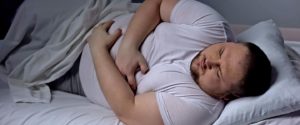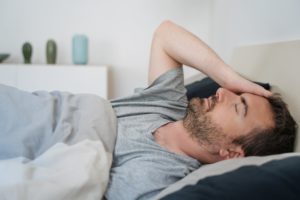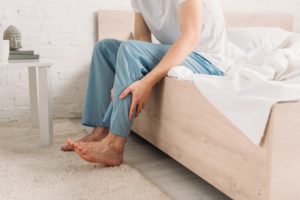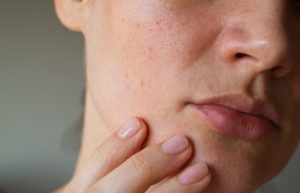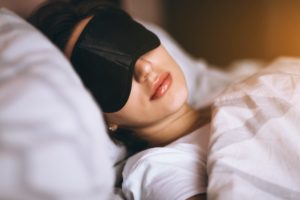The Relationship Between Anemia and Sleep
Sleep issues can occur for reasons other than a person having a sleep disorder. Certain medical issues – including anemia – are often linked to trouble sleeping. However, while there’s an association between anemia and sleep, there’s not enough evidence to link a causal relationship.
We explore the relationship between anemia and sleep, how iron supplements affect sleep, and sleep disorders associated with low levels of iron.
Looking to improve your sleep? Try upgrading your mattress.
What Is Anemia?
A person has anemia when they have a decreased amount of red blood cells. Anemia is usually diagnosed through measures of red blood cells themselves – in particular, hemoglobin and hematocrit.
Red blood cells play a critical role in transporting oxygen from the lungs to the rest of the body through their hemoglobin content. When a person has anemia, they have fewer red blood cells moving oxygen where it is needed. This lack of oxygen causes symptoms associated with anemia, like fatigue, weakness, dizziness, thirst, sweating, and rapid breathing. People can also have anemia without noticing any symptoms– especially if it’s mild or develops slowly over time.
Anemia can occur because a person has lost blood, or because their body is either excessively destroying red blood cells or not producing enough red blood cells. People can develop anemia due to an iron or vitamin B12 deficiency, after an injury or childbirth, or as the result of another illness, like an autoimmune disorder or cancer.
How Does Anemia Affect Sleep?
Both iron-deficiency anemia and non-iron-deficiency anemia have been linked to less sleep or trouble sleeping. However, it is not entirely certain that anemia causes sleep issues.
Some experts have proposed that anemia might cause sleep problems related to the neurotransmitters involved in sleep, like serotonin and dopamine. Research has found that iron is needed to create these neurotransmitters and people with iron-deficiency anemia may have lower levels of them as a result of their low iron levels.
In non-iron-deficiency anemia, one theory is that the anemia causes fatigue, and then the fatigue leads to worsened sleep. Fatigue could lead to worsened sleep if it causes a person to engage in less physical activity or spend less time outdoors being exposed to bright sunlight, which impacts sleep and wake times.
Do Low Iron Levels Cause Sleep Issues?
Research has found that low iron levels are linked to a variety of sleep issues and disorders including restless legs syndrome and obstructive sleep apnea. In some instances, supplementing with iron may help with these problems.
Does Anemia Make You Sleep More?
Research suggests that having anemia tends to make people sleep less, not more. The tendency to sleep less is associated with both iron-deficiency anemia and non-iron-deficiency anemia and has been found to occur in people of all ages, including infants, children, adults, and older adults.
Can Iron Supplements Affect Sleep?
If a person has sleep problems related to an iron deficiency, iron supplementation could potentially help alleviate them. However, it is possible to ingest too much iron, so people should consult with their doctor before beginning iron supplementation. In children, accidentally ingesting iron can lead to death.
Sleep problems are not usually listed as a side effect of iron supplements. However, taking iron supplements may cause digestive side effects, like constipation or diarrhea, which could interfere with a person’s sleep if they happen at night. Anyone taking iron supplements should talk to their doctor if they suspect the supplements are causing side effects that may be interfering with their sleep.

Still have questions? Ask our community!
Join our Sleep Care Community — a trusted hub of sleep health professionals, product specialists, and people just like you. Whether you need expert sleep advice for your insomnia or you’re searching for the perfect mattress, we’ve got you covered. Get personalized guidance from the experts who know sleep best.
References
6 Sources
-
Means, R. & Brodsky, R. (2023, December). Diagnostic approach to anemia in adults. In J. Tirnauer & J. Givens (Ed.). UpToDate., Retrieved January 5, 2024, from
https://www.uptodate.com/contents/evaluation-and-diagnosis-of-insomnia-in-adults -
Braunstein, E. (2022, September). Overview of Anemia. Merck Manual Consumer Version., Retrieved January 5, 2024
https://www.merckmanuals.com/home/blood-disorders/anemia/overview-of-anemia -
Chen-Edinboro, L. P., Murray-Kolb, L. E., Simonsick, E. M., Ferrucci, L., Allen, R., Payne, M. E., & Spira, A. P. (2018). Association Between Non-Iron-Deficient Anemia and Insomnia Symptoms in Community-Dwelling Older Adults: The Baltimore Longitudinal Study of Aging. The journals of gerontology. Series A, Biological sciences and medical sciences, 73(3), 380–385.
https://pubmed.ncbi.nlm.nih.gov/28329301/ -
Rodrigues Junior, J. I., Mecenas, V. G. F., de Oliveira Lima, M., Menezes, R. C. E., Oliveira, P. M. B., & Longo-Silva, G. (2023). Association between iron deficiency anemia and sleep duration in the first year of life. Revista paulista de pediatria : orgao oficial da Sociedade de Pediatria de Sao Paulo, 42, e2022173.
https://pubmed.ncbi.nlm.nih.gov/37493672/ -
Leung, W., Singh, I., McWilliams, S., Stockler, S., & Ipsiroglu, O. S. (2020). Iron deficiency and sleep – A scoping review. Sleep medicine reviews, 51, 101274.
https://pubmed.ncbi.nlm.nih.gov/32224451/ -
Nguyen, M. & Tadi, P. (2023, July 3). Iron Supplementation. StatPearls., Retrieved January 4, 2024, from
https://www.ncbi.nlm.nih.gov/books/NBK557376/






















